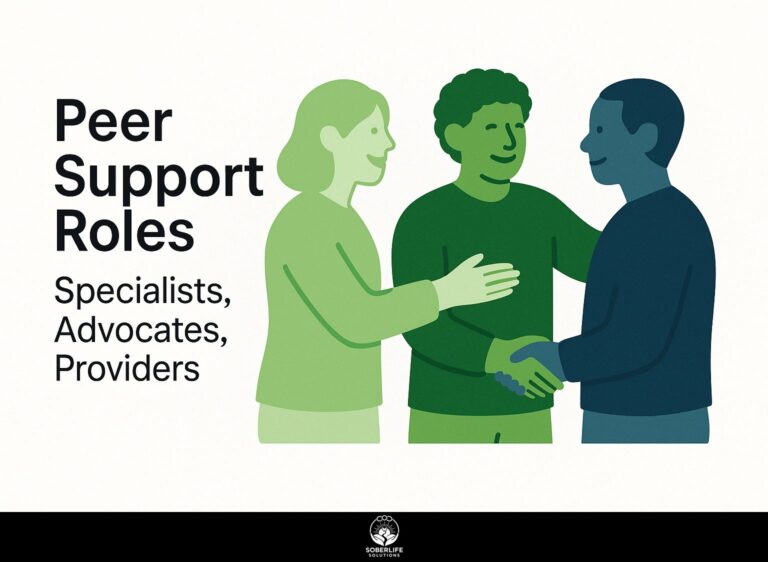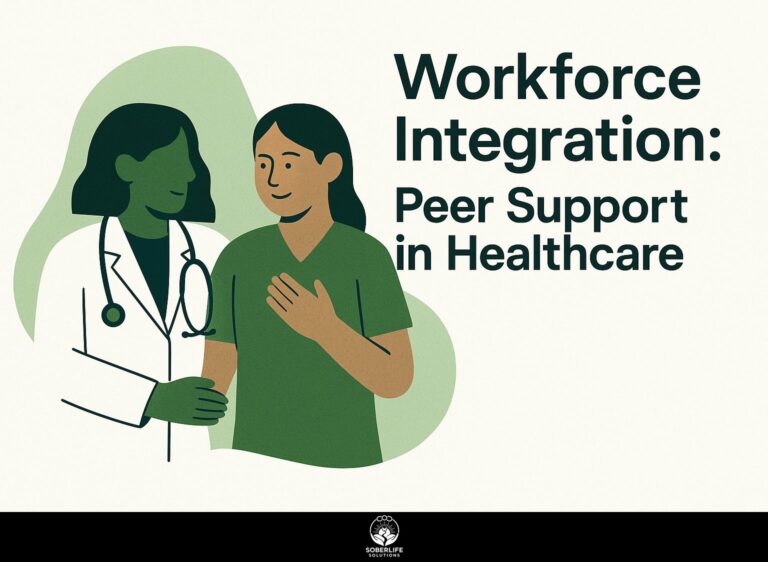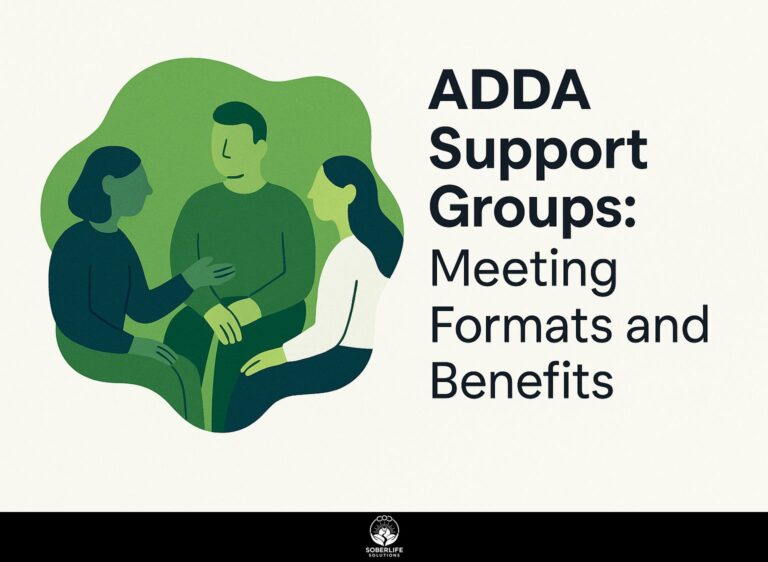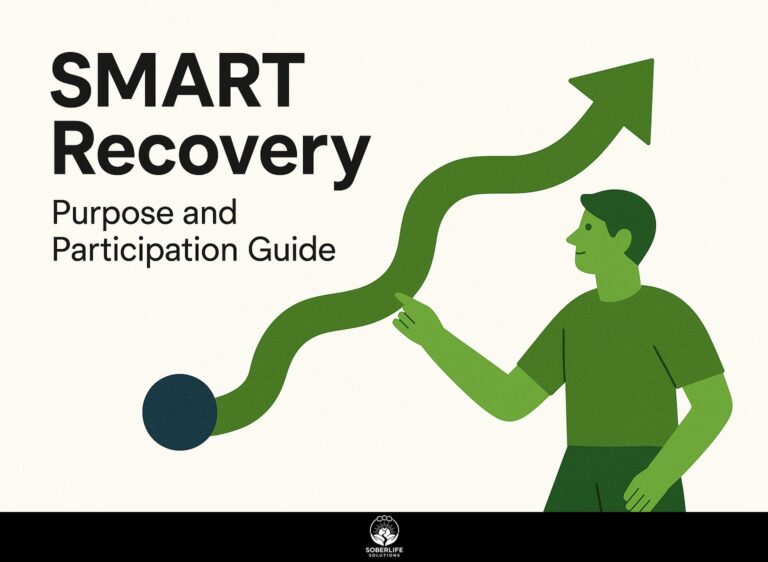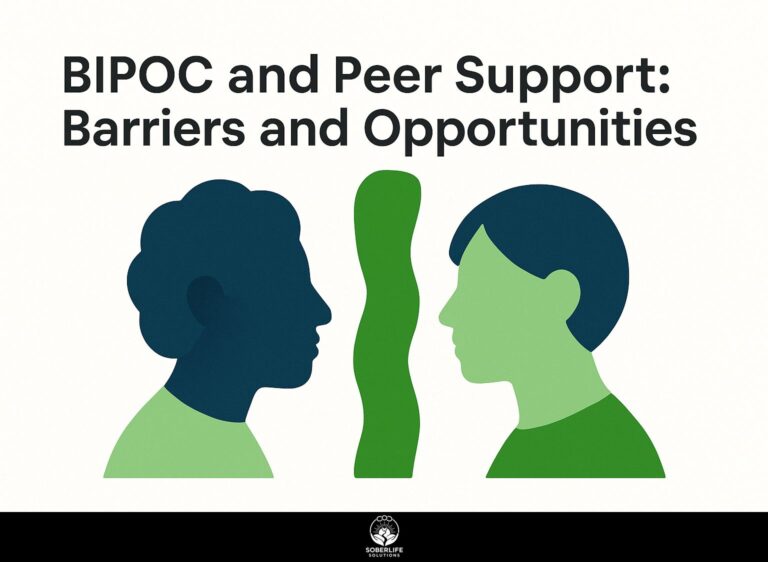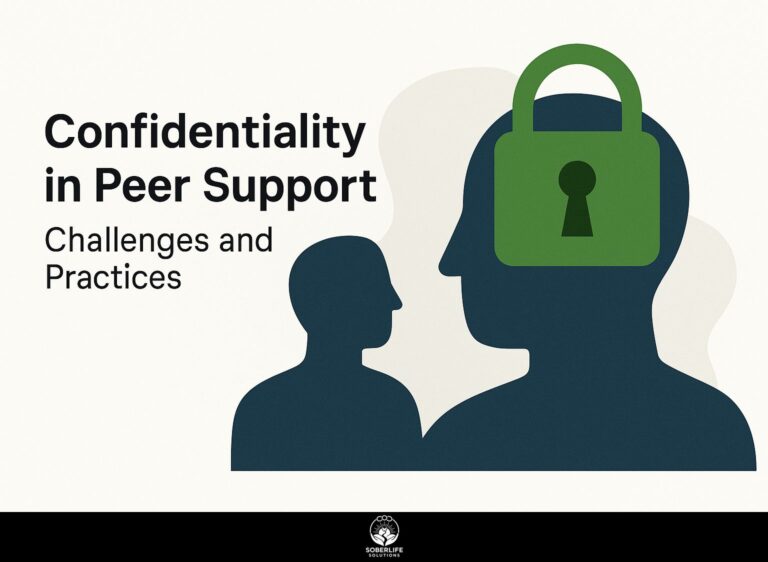Veterans and Alcoholism: Peer Support Services and Networks
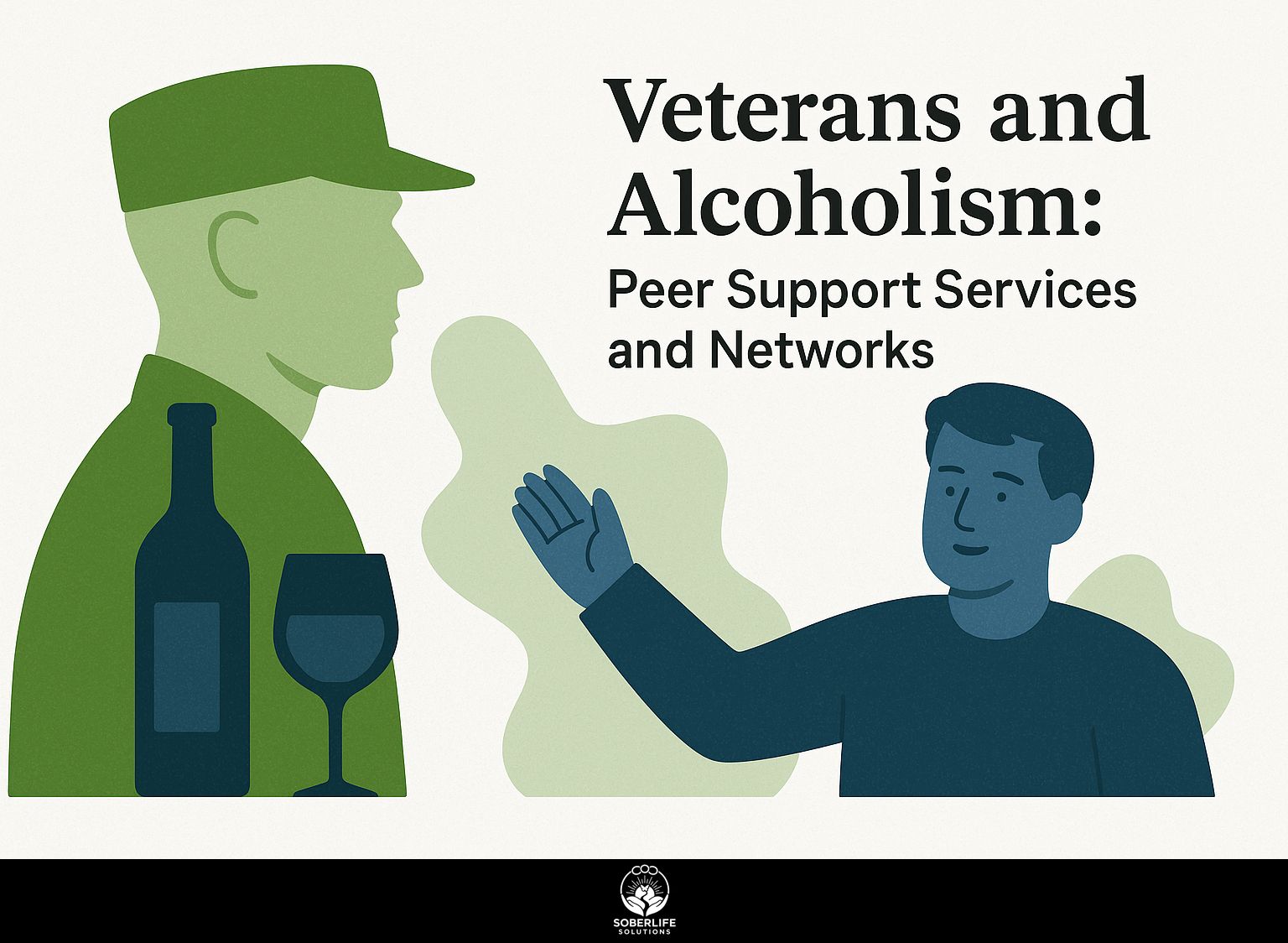
Veterans who drink too much often have difficulty with PTSD symptoms, so having support from others who have been through similar experiences is important for healing. The Veterans Health Administration recognizes the need for effective eHealth interventions, including web-based cognitive behavior therapy. This article looks at how peer support groups can help veterans, especially those impacted by their time in Iraq, to take control of their lives again. Learn how these programs build community, lessen stigma, and improve mental health for those in need.
Key Takeaways:
Prevalence of Alcoholism Among Veterans
According to the National Institute on Alcohol Abuse and Alcoholism, veterans are 2-3 times more likely to develop alcoholism compared to their civilian counterparts.
Among veterans, those who served in Iraq and Afghanistan exhibit the highest rates, with studies indicating that around 12-16% face alcohol use disorders. In contrast, veterans from the Vietnam era show rates of approximately 8%.
Addressing these issues requires targeted intervention programs like Alcoholics Anonymous, which offers peer support, and the Veterans Affairs’ treatment initiatives focusing on mental health. Insights from RAND highlight the critical role of these interventions in supporting veterans struggling with alcohol use disorders.
Using these resources can greatly improve recovery results, helping veterans conquer addiction and rebuild their lives.
Impact of Military Service on Alcohol Use
Military service often correlates with increased alcohol use, as veterans may turn to drinking as a coping mechanism for PTSD symptoms and other mental health challenges.
Studies indicate that veterans exposed to combat are significantly more likely to develop alcohol misuse issues. Returning to civilian life can make feelings of loneliness and anxiety stronger, leading some veterans to use substances to cope.
For example, a study published in the Journal of Traumatic Stress found that nearly 30% of veterans with PTSD exhibited problematic drinking behaviors. A perspective from RAND Corporation highlights how alcohol use disorder among U.S. veterans is a prevalent issue.
Effective interventions include:
- Counseling and Support Groups, which help veterans connect and share experiences,
- Therapeutic Programs that focus specifically on coping strategies.
Utilizing resources like the VA’s Vet Centers can provide critical support during this challenging adjustment period.
Understanding Peer Support Services
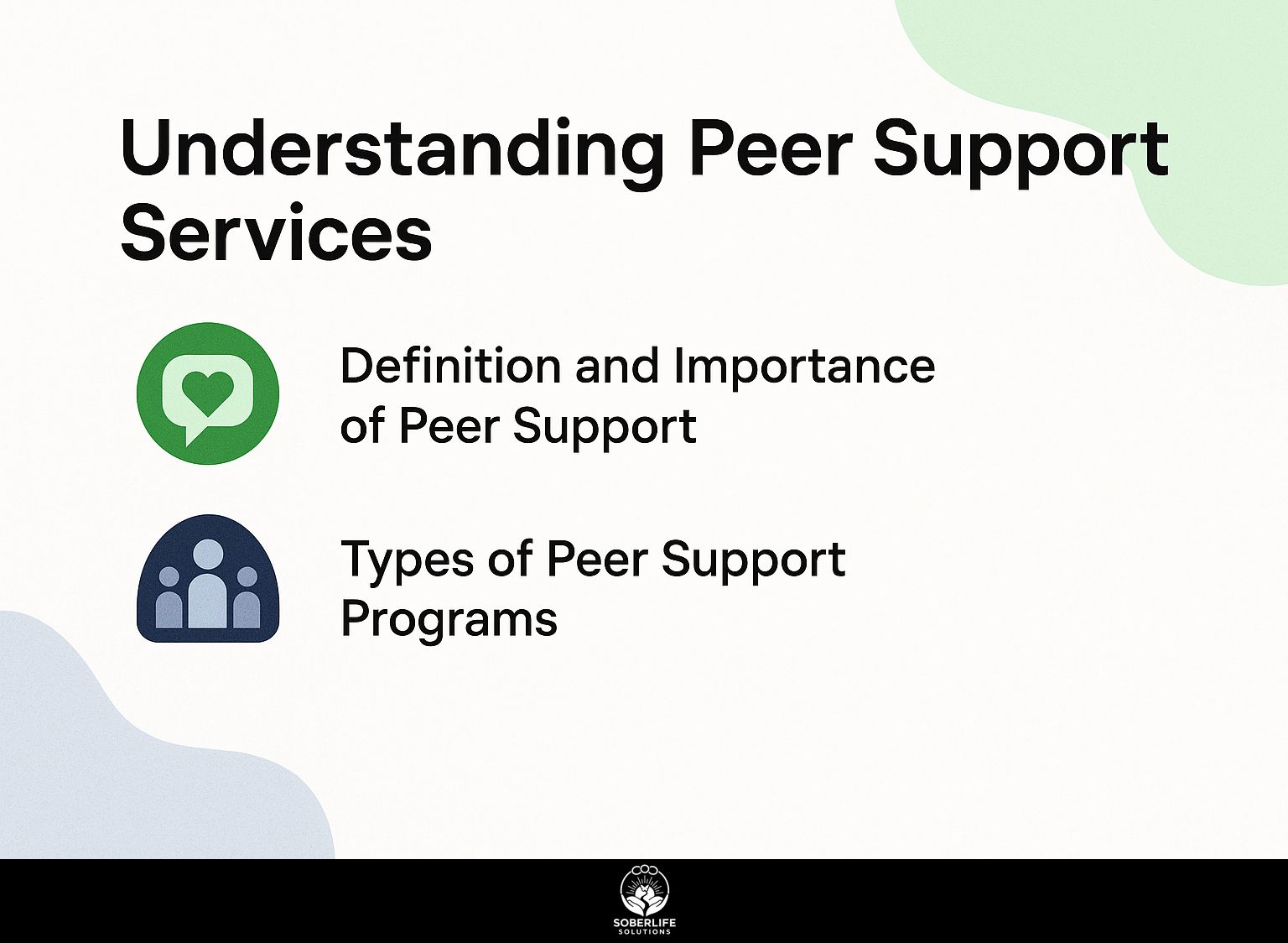
Peer support services offer important social help to veterans dealing with alcoholism, creating a positive setting for recovery and involvement with mental health services. If you’re interested in exploring how peer support can be tailored to specific groups, consider our insights into Peer Support Groups for Young Adults to understand different approaches.
Definition and Importance of Peer Support
Peer support is when people with similar experiences provide emotional and practical help. This approach has been shown to improve how engaged patients feel and their recovery results.
Research indicates that peer-led initiatives lead to a 30% increase in patient satisfaction and a 25% reduction in hospitalization rates.
Programs like Peer Bridger in hospitals link patients with recovery guides to help them use healthcare systems effectively. Similarly, online platforms like 7 Cups provide chat-based support from trained volunteers, demonstrating the accessibility of peer support. For a broader context, NAMI discusses the growing need to expand such initiatives to further enhance mental health outcomes.
By building a community where people share experiences, these programs lift spirits and increase confidence in participants, leading to a more encouraging recovery setting.
Types of Peer Support Programs
There are different peer support program models, such as group therapy, one-on-one mentoring, and online support communities, each designed to meet specific veteran needs.
For instance, the Thinking Forward program focuses specifically on veterans dealing with PTSD by facilitating group sessions that encourage sharing personal experiences and coping strategies.
Individual mentoring matches veterans with experienced peers who provide specific advice suited to substance use recovery (our chronic illness recovery framework offers a deeper understanding of tailored recovery processes).
Online support groups, such as those on Facebook or Reddit, let veterans talk with others who have similar problems, all from their own homes, creating a feeling of community and shared experiences without being restricted by location.
Each model helps the veteran’s path to recovery by offering different levels of support.
The Role of Peer Support Networks
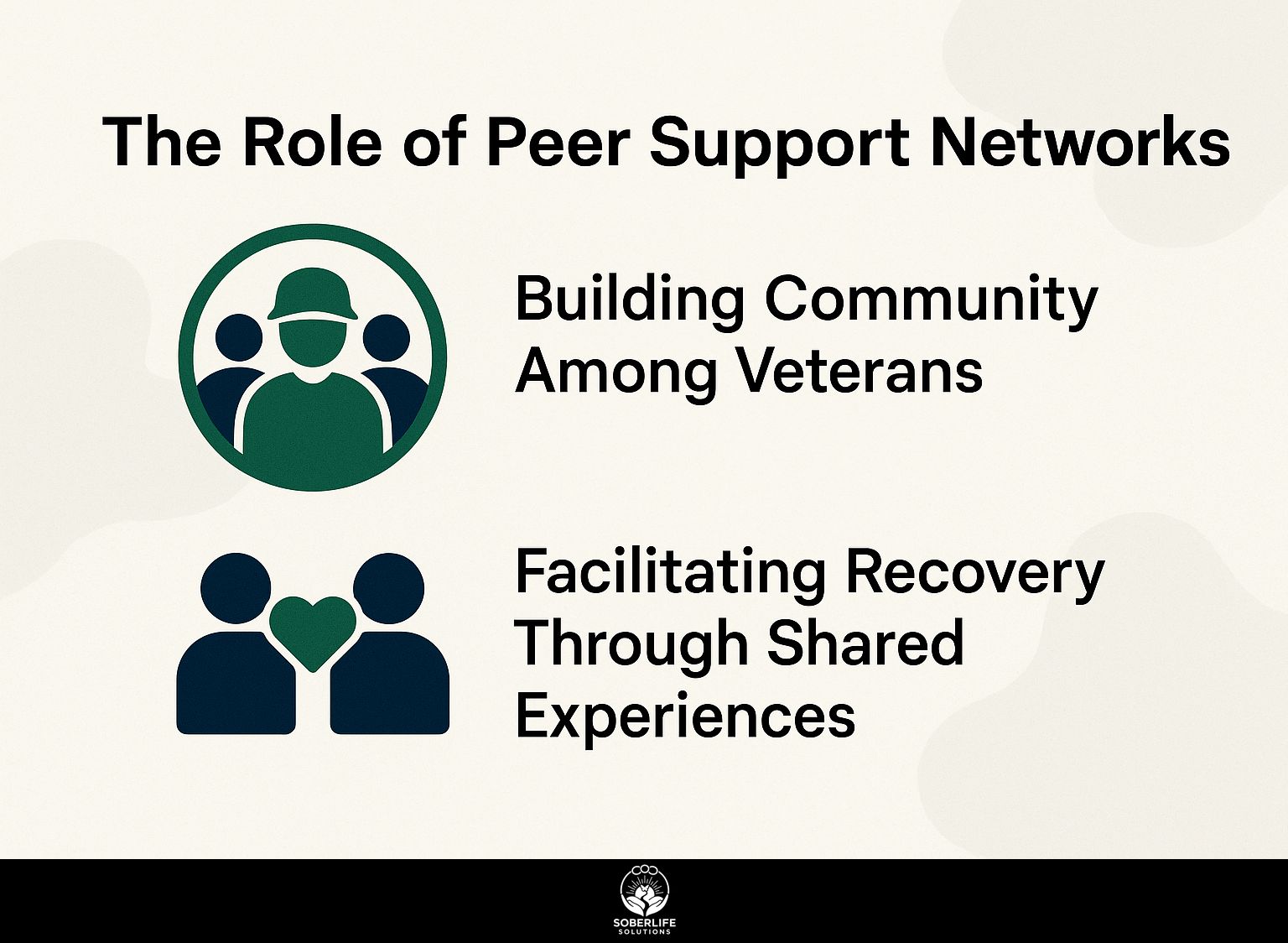
Peer support networks are important for creating connections among veterans, helping them recover by sharing experiences.
Building Community Among Veterans
Effective community building among veterans can lead to a 40% increase in treatment retention rates, driven by shared experiences and mutual encouragement.
To build strong groups for veterans, think about setting up regular gatherings such as support group meetings or fun activities to help people connect.
A local Veterans of Foreign Wars (VFW) group started holding monthly BBQs to bring members closer together.
Using social media sites like Facebook and Instagram can help keep people interested. Create dedicated groups where veterans can share resources and stories; a successful group in New York has seen over 500 members in under a year.
Making these connections strengthens bonds and encourages a supportive environment.
Facilitating Recovery Through Shared Experiences
Joining peer-led groups can greatly improve recovery, with veterans saying their coping strategies work 50% better when they are part of these groups.
Programs like StoryCorps and The Moth focus on narrative sharing, creating safe spaces for individuals to express their experiences. These platforms encourage storytelling, allowing participants to connect over shared struggles and resilience.
The Veteran’s Administration provides the Veterans’ Writing Project, where veterans write and share their stories, helping them heal through writing. Online platforms like BetterHelp use storytelling in therapy to help clients talk about their feelings and form connections.
Such programs highlight the power of shared narratives in enabling effective coping strategies and building supportive communities.
Benefits of Peer Support for Veterans
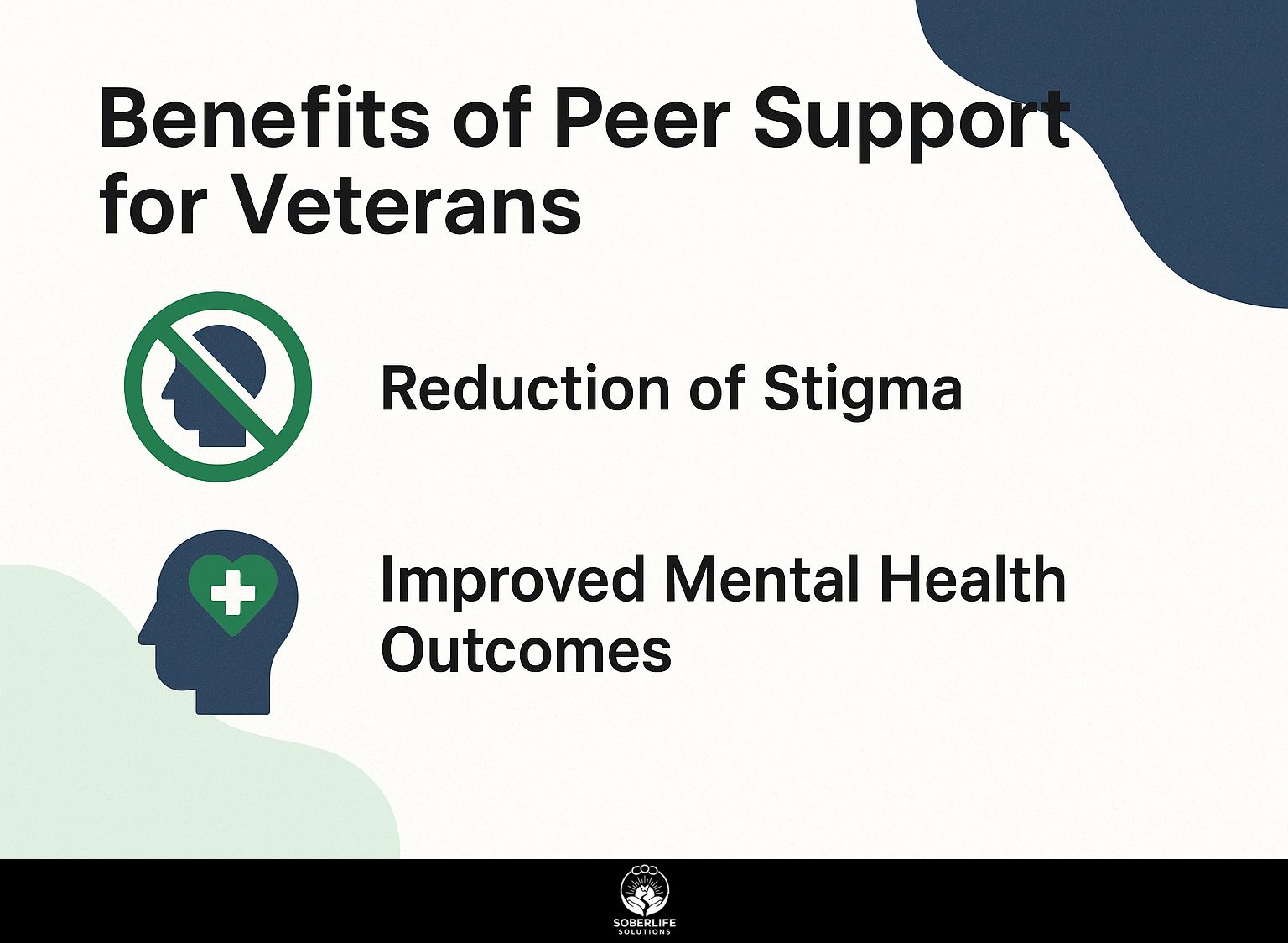
Peer support services offer many benefits for veterans, such as less stigma and better mental health results, backed by factual evidence.
Reduction of Stigma
Being part of peer support groups can make it easier for people to ask for help. 70% of members say they feel more welcomed by others in their community.
People involved in these programs often talk about life-changing moments that show how strong a community can be. For instance, one individual noted, “Before joining the peer group, I felt isolated; now, I see others overcoming similar challenges, and it motivates me to keep going.”
Structured sessions that facilitate open discussions help break down barriers, allowing participants to express vulnerabilities without judgment. Creating a space where people share and value recovery stories greatly benefits the mental health of everyone in the group.
Improved Mental Health Outcomes
Studies indicate that veterans participating in peer support programs experience a 30% improvement in mental health outcomes, particularly in managing PTSD symptoms.
This improvement can be attributed to the counseling techniques and structured support these programs offer.
For example, the Trauma Recovery and Empowerment Model (TREM) helps people recover and grow by discussing their experiences together.
Validated assessment tools like the PTSD Checklist (PCL-5) and the Beck Depression Inventory (BDI-II) are commonly used to track changes in mental health metrics among participants. These tools help track progress and make changes to programs to better suit veterans’ needs.
Challenges in Implementing Peer Support Services
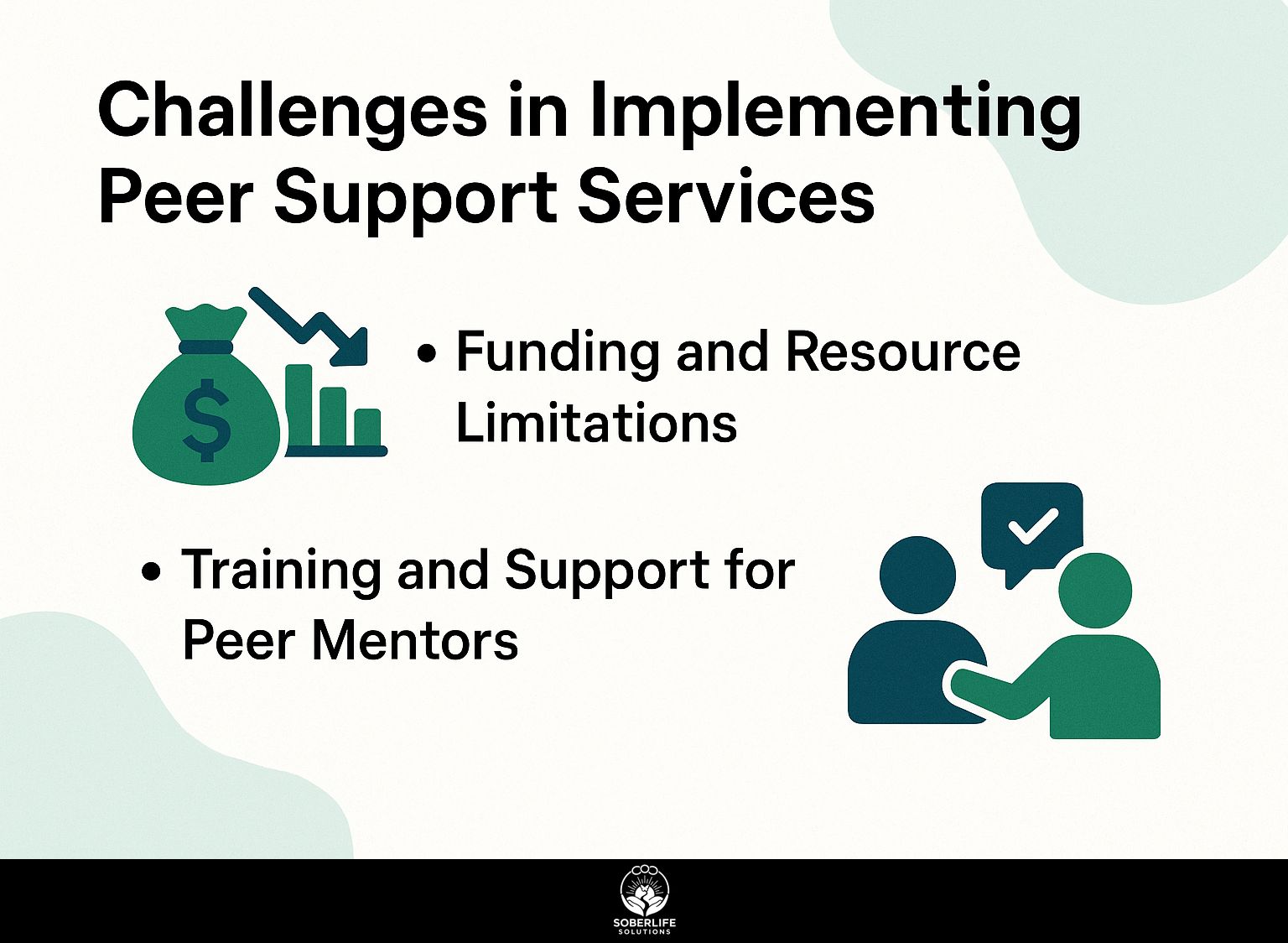
Although peer support services are important, they encounter major difficulties like limited funding and the requirement for thorough training for peer mentors. Addressing these challenges can benefit greatly from equipping individuals with essential life skills, which are crucial for effective addiction recovery. Our expert opinion on life skills in addiction recovery delves deeper into how these skills can support both mentors and mentees.
Funding and Resource Limitations
Funding for peer support programs often falls short, with only 25% of VA medical centers adequately resourced to support these initiatives.
Funding restrictions can reduce the quality and availability of important mental health services. To improve support systems, organizations can look into various funding options.
Consider applying for grants from the Substance Abuse and Mental Health Services Administration (SAMHSA) or the Robert Wood Johnson Foundation, both of which frequently support mental health initiatives.
Local businesses might also offer sponsorships or partnership opportunities. Engaging with crowdfunding platforms like GoFundMe can mobilize community support, allowing peer programs to thrive despite budget constraints.
Training and Support for Peer Mentors
Training peer mentors well is important because research shows that mentors who are properly trained can increase participant involvement by up to 60%.
To create a strong peer mentor training program, think about using a curriculum that includes workshops on communication skills, resolving disagreements, and active listening.
Use role-playing scenarios to simulate real-life situations mentors may face. Set up a support network where experienced mentors can regularly give advice and feedback.
Regular monthly meetings can help solve any problems mentors face. Studies show that programs with planned training lead to a 30% rise in mentor satisfaction, which helps improve mentees’ experiences.
Case Studies and Success Stories
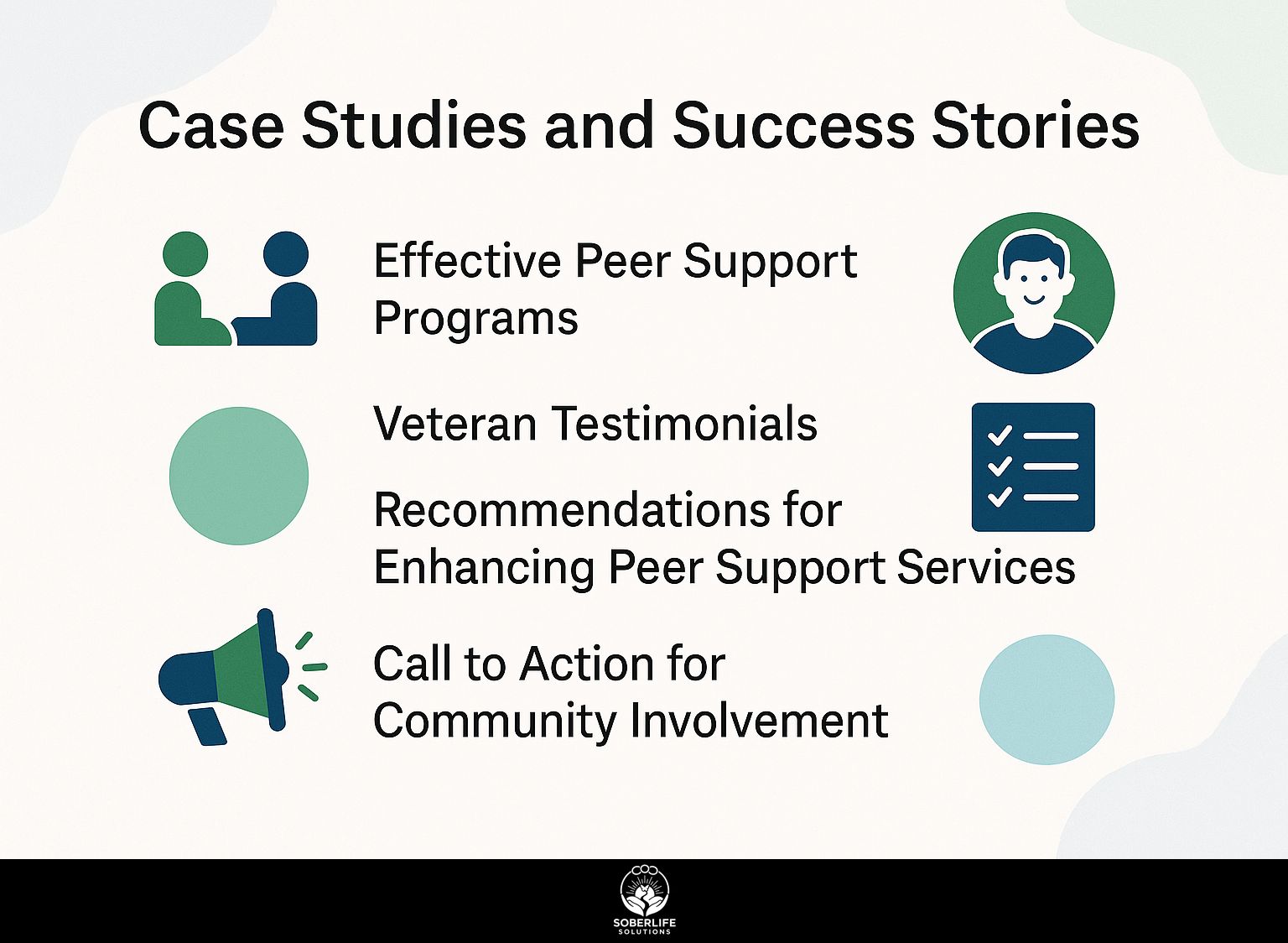
Looking at successful examples of peer support programs shows significant effects on how veterans recover, giving practical examples of what works. For those curious about how these programs extend beyond veterans, our in-depth analysis on Peer Support Groups for Families: Support for Loved Ones offers insights into their broader impacts.
Effective Peer Support Programs
Programs like the ‘Veteran-to-Veteran’ initiative have demonstrated effectiveness, with participants reporting a 70% increase in treatment adherence.
Effective peer support programs often include specific elements such as:
- Trained leaders
- Regular follow-up meetings
- Different participation activities
Funding can come from governmental grants, nonprofit foundations, or community partnerships, ensuring sustainability.
To measure effectiveness, programs employ metrics like participant retention rates, feedback surveys, and any observable changes in mental health outcomes.
Using tools like Google Forms for surveys helps gather important data on how participants feel about the program and what can be improved, which supports ongoing improvement of the program’s effectiveness.
Veteran Testimonials
Veterans often share powerful testimonials about their experiences with peer support, citing increases in hope and recovery alongside decreased feelings of isolation.
Many veterans say they build strong relationships through peer support programs.
For instance, one veteran recounted how regular group meetings provided a safe space for sharing struggles and triumphs, leading to improved mental well-being. Some people mentioned how mentorship affected them, with experienced professionals helping those who were new, building a feeling of belonging and goals.
Tools such as a special support hotline or online forums make access easier, allowing veterans to communicate in ways that suit them. These programs help reduce loneliness and bring back feelings of hope and connection.
Recommendations for Enhancing Peer Support Services
Important tips for improving peer support services are developing thorough training programs and ensuring ongoing funding.
To put these suggestions into practice successfully, think about providing training sessions on active listening and crisis intervention skills, specifically suited to the specific requirements of your community.
Building partnerships with local businesses can provide financial stability; for instance, a community center in Texas partnered with a local bank to secure annual grants.
Using online platforms like GrantWatch can help you find funding options, ensuring your peer support services have enough money and are useful for participants.
Call to Action for Community Involvement
Community involvement is essential for the success of peer support programs, with studies showing that active engagement can increase participation by up to 50%.
To encourage this participation, try these methods:
- Volunteer your time at local peer support events, which helps facilitate connections and builds trust.
- Support community initiatives through funding; even small donations can make a significant difference in program sustainability.
- Advocate for these programs by sharing their benefits on social media or organizing informational sessions in your community.
- Resources like VolunteerMatch or local nonprofits can link you with opportunities that match your interests and skills, increasing the effect of your help.
Frequently Asked Questions
What are peer support services for veterans struggling with alcoholism?
Peer support services for veterans struggling with alcoholism are programs that provide support and guidance from individuals who have personal experience with alcoholism and have successfully overcome it. These services offer a non-clinical approach to recovery and focus on building a network of supportive peers.
Why are peer support services important for veterans with alcoholism?
Peer support services matter for veterans dealing with alcoholism because they provide a special kind of help and empathy. Veterans can understand and connect with other veterans experiencing the same challenges, creating a sense of community and belonging. This help can be important in recovering.
What types of peer support networks are available for veterans with alcoholism?
There are various types of peer support networks available for veterans with alcoholism, including online forums, group meetings, one-on-one mentorship, and retreats. These networks provide a safe and supportive environment for veterans to share their experiences and work towards recovery together.
How can I find peer support services and networks for veterans with alcoholism?
You can find peer support services and networks for veterans with alcoholism through organizations such as the Veterans Health Administration, Vet Center, and various non-profit organizations. These resources can also be found through online research and by asking for recommendations from your healthcare provider.
Are peer support services and networks effective in helping veterans with alcoholism?
Studies have shown that peer support services and networks have a positive impact on the recovery of veterans with alcoholism. These services help people feel less alone and give them a feeling of belonging and support, which can significantly help in getting better.
Do peer support services and networks only focus on alcoholism?
No, peer support services and networks for veterans may also focus on other mental health and substance abuse issues. These programs usually take a complete approach to recovery and may offer help and resources for different difficulties that veterans might encounter.

